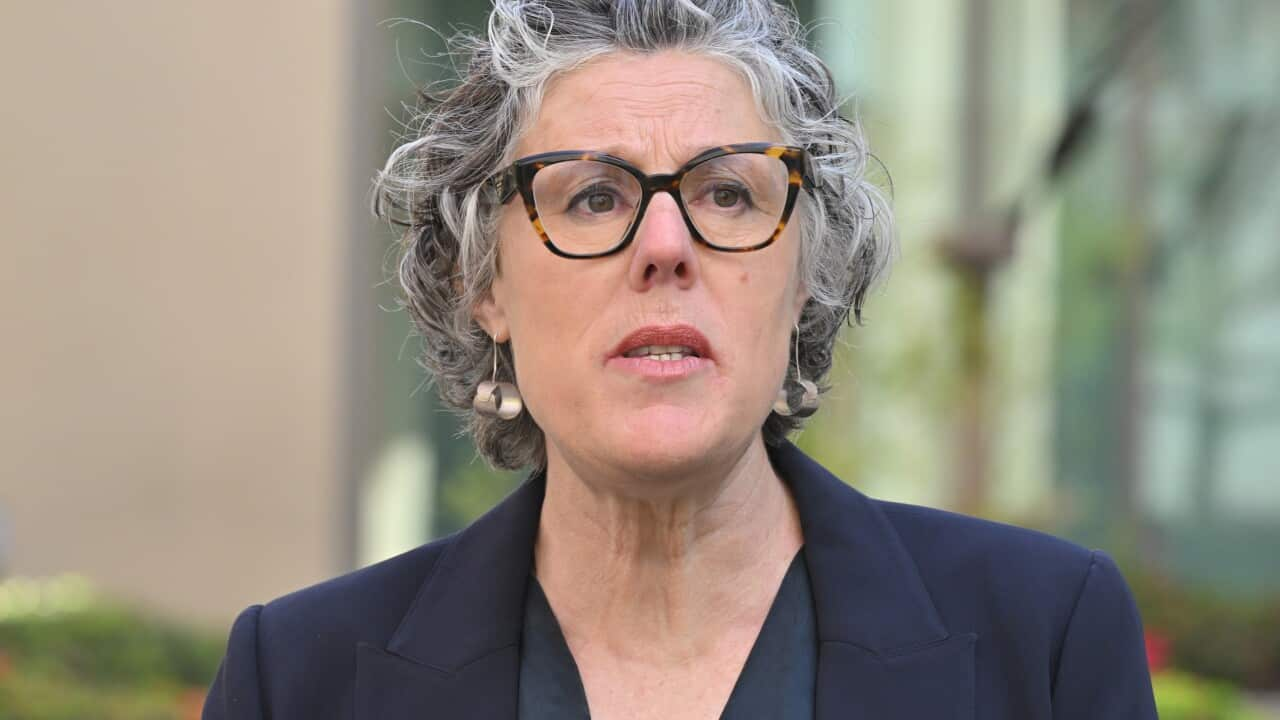Key Points
- A business owner has told SBS News telemarketers have been falsely using his company's name to sell products.
- He received angry emails and phone calls almost daily, and several people made complaints about him to a watchdog.
- Falsely using a reputable business name is often used by criminals to make scams seem legitimate.
Earlier this year, Marcus Cundy-Cooper began receiving angry emails and phone calls from members of the public complaining about his business.
He found out telemarketers have been cold-calling members of the public — many of whom had registered their phone numbers on the 'Do Not Call' register — and were claiming to work for his company, Energy Advisor.
In reality, the telemarketers have nothing to do with his business and appear to be calling from overseas.
Cundy-Cooper believes they are using his legitimate name and company to make illegitimate sales, tarnishing his reputation in the process.
He said one complainant told him she had received 17 phone calls from telemarketers claiming to work for Energy Advisor, while others said the callers had used his ABN or known their personal details.
"When I saw the first [complaint] email, it was quite a shock ... then the phone calls started," Cundy-Cooper said.
"It was a huge emotional shock; you don't want to be facing that ... I even contemplated changing my business name."
According to the National Anti-Scam Centre (NASC), which helps people spot and avoid scams, the tactic of falsely using a reputable business name is not new.
In situations like Cundy-Cooper's, scammers may claim to represent an existing company, or in more advanced cases, they may gain access to an organisation's emails or customer database.
"It is a common tactic of scammers to impersonate well-known brands and trusted organisations, including government organisations, law enforcement, popular online stores, and other well-known service providers," a NASC spokesperson said.
"Scammers will email clients, customers, and others that deal with the organisation to ask for payments. They will then change banking details on legitimate invoices so that payments are sent to scammer accounts instead of to the actual organisation."

Scammers often falsely use the names of well-known or reputable organisations. Source: AAP / Jaap Arriens/PA/Alamy
"What we are seeing change is that the level of sophistication is that within cybercrime, this pattern has now been adopted as well," he said.
"So whether that's websites selling counterfeit goods that look much like the real thing, or communications attempting to come from a well-known brand, these are the sorts of techniques that allow criminals to hijack consumers' familiarity with businesses they already know in order to get them to part with their money."
Fortunately, Cundy-Cooper did not directly lose money through the ordeal. His main concern has been his reputation and the angry calls which he received almost daily at one stage.
Several people who received the scam calls also lodged complaints with the Australian Communications and Media Authority (ACMA), which sets and manages rules about communications and media services.
Non-compliance with telemarketing laws, including the Do Not Call register, can result in financial penalties of up to $313,000 per day.
The ACMA told SBS News it is aware of this scam and has engaged with the business being impersonated to provide some assistance.
"Brand impersonation call scams are common and we actively work with telcos to try and disrupt them," ACMA said in a statement.
"We proactively provide data to telcos to help them identify and block these types of scams, however, scammers use a range of dynamic obfuscation techniques to avoid detection."
After communicating with ACMA, Cundy-Cooper has been able to clear himself of non-compliance complaints. Under ACMA's advice, he has also set up a notification on his website informing visitors of the scam.
While he continues to receive complaint calls, they have become less frequent and he believes his disclaimer is working.
What are the most common business scams?
According to NASC, common scams associated with businesses include invoice fraud, employee impersonation and company impersonation.
If you are contacted by somebody claiming to represent a business or organisation, ask yourself whether the call or message could be fake.
Contact the organisation using the information you source independently to verify if the call is real or not, and never click on links in messages.
Scammers often create a sense of urgency, but you should not give out personal information to anybody if you are unsure whether they are legitimate.
If you have lost money or think you could lose money, contact your bank immediately. If you have provided personal information, contact IDCARE on 1800 59 160 and report scams to scamwatch.gov.au.




